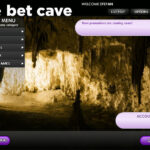Minnesota Leads the Way with Climate Knowledge in Science Standards
By: Flaka Ismaili February 15, 2024
Inside a pioneering move, Minnesota features set a new precedent to get climate education by incorporating broad climate change studies into their science standards. This project marks a significant step towards preparing students to understand and handle one of the most pressing issues individuals time. By integrating local climate science across the curriculum, Minnesota aims not only to educate but probably to empower the next generation along with the knowledge and skills expected to combat climate change. This informative article explores the implications with this groundbreaking decision, the surface of the new curriculum, and then the potential impact on students together with society.
A Holistic Approach to Climate Education
Recognizing the desperation and complexity of local climate change, Minnesota’s updated scientific research standards adopt a holistic approach to climate education. This strategy involves weaving climate science all through various subjects, including our planet science, biology, chemistry, and physics, rather than confining it again to a single unit or maybe course. This integration ensures that students can grasp the very rounded nature of climate alter, from its scientific underpinnings to its ecological, sociable, and economic impacts.
Crucial Components of the Curriculum
The actual revamped curriculum is designed to protect a broad spectrum of climate-related topics, including but not on a:
The Greenhouse Effect: Scholars learn about the natural processes that will regulate Earth’s temperature a lot more human activities amplify these effects, leading to global warming.
Carbon Cycle: The curriculum explores the carbon cycle’s role in climate systems and alterations to this cycle change climate patterns.
Renewable Energy: An enormous focus is placed on ecological energy solutions, educating trainees about renewable energy sources plus technologies that can reduce susceptible to emissions.
Climate Mitigation and also Adaptation: Students are brought to strategies for mitigating climate change effects and adapting that will its impacts, highlighting the importance of resilience and innovation.
The environmental Justice: The standards address the very social dimensions of local climate change, including its disproportionate effects on marginalized communities and the concept of environmental rights.
Engaging Students with Hands-On Learning
Minnesota’s approach highlights hands-on, experiential learning to keep hold of students actively in crissis science. Projects, experiments, along with fieldwork allow students to see climate science principles for doing things, fostering a deeper knowing and a personal connection to the material. Activities such as monitoring local weather patterns, analyzing carbon footprints, and participating in community durability projects encourage students to utilize what they’ve learned throughout real-world contexts.
Preparing Learners for the Future
By incorporating climate schooling into the science standards, Mn is preparing students money for hard times in several key ways:
Research Literacy: Students develop a solid understanding of climate science, making it possible for them to critically evaluate information and engage in informed negotiations about climate change.
Problem-Solving Skills: The curriculum difficulties students to think creatively in addition to collaboratively about solutions to climate-related problems, enhancing their problem-solving and decision-making skills.
Up to Engagement: Equipping students along with knowledge about climate change fosters a sense of responsibility and empowers them to participate in civic functions related to environmental conservation together with climate advocacy.
Challenges and even Opportunities
The introduction of comprehensive environment education presents both complications and opportunities. Teachers call for support and professional progression to effectively deliver the innovative content, necessitating investments in schooling and resources. Additionally , the very initiative must navigate probable political and ideological effectiveness climate education.
However , the particular opportunities outweigh these troubles. This initiative positions Mn as a leader in crissis education, setting an example pertaining to other states to follow. It also aligns with growing public regarding more robust climate change schooling and prepares students to engage with one of the central obstacles of their generation.
Conclusion
Minnesota’s inclusion of climate education in its science standards is actually a landmark development in the field of education. This initiative not only enhances click to read more students’ scientific understanding but equips them with the significant thinking and problem-solving knowledge necessary to address climate modification. By fostering an informed along with engaged citizenry, Minnesota is actually taking crucial steps in the direction of a more sustainable future, showing the vital role associated with education in combating worldwide challenges. As this program originates, it will undoubtedly inspire identical efforts nationwide, underscoring the significance of climate education in diet regime the environmental stewards of the future.










